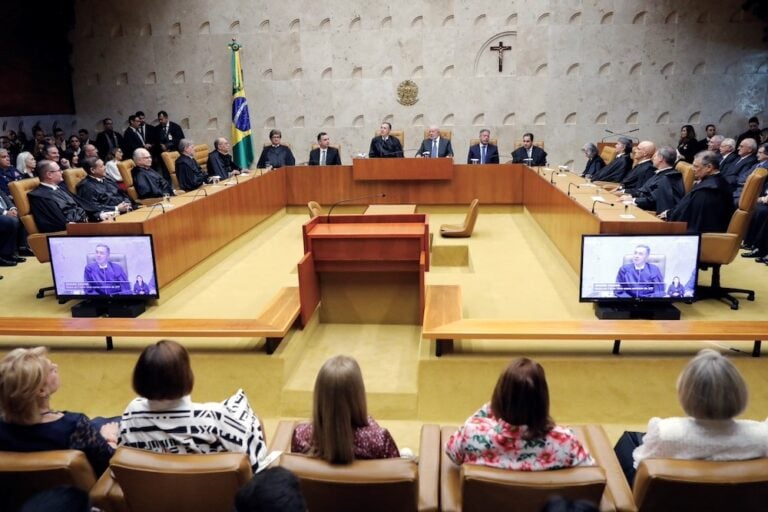The Committee to Protect Journalists condemns the murder of radio journalist Israel Gonçalves Silva, who was shot dead Tuesday in the Brazilian state of Pernambuco. The attack comes as at least four journalists have been murdered in direct retaliation for their work in Brazil this year.
This statement was originally published on cpj.org on 11 November 2015.
The Committee to Protect Journalists condemns the murder of radio journalist Israel Gonçalves Silva, who was shot dead Tuesday in the Brazilian state of Pernambuco. The attack comes as at least four journalists have been murdered in direct retaliation for their work in Brazil this year.
“We are deeply concerned with the alarming increase in lethal violence against journalists in Brazil, which has made this country one of the most dangerous for the press in the world,” said Carlos Lauría, CPJ’s senior program coordinator for the Americas, in New York. “We urge Brazilian authorities to thoroughly investigate this crime, determine whether it was related to Silva’s work as a journalist, and prosecute all the perpetrators.”
Silva was killed around 7:30 a.m. in Lagoa de Itaenga, a small town about 40 miles (65km) northwest of Recife in Brazil’s impoverished northeast, according to local news reports.
The radio reporter was in an electronics store after taking his two children to school, when a man opened fire and hit Silva at least twice, once in the arm and once in the neck, reports said. Silva’s belongings were not taken in the attack, and the assailant fled on an accomplice’s motorbike, according to reports that cited witnesses.
Silva hosted the daily show “Open Microphone” on the town’s community station Rádio Itaenga FM. The show, which ran from noon to 1pm, took calls from listeners about alleged corruption and malfeasance by politicians and police, his colleague and friend Edilson Gomes dos Santos told CPJ in a telephone call from the station. Silva also interviewed mayors, city councilmen, and state deputies about contentious local issues, Gomes dos Santos said.
Silva, who had worked at the station for five years and was also employed as a municipal guard, would often call out authorities for alleged misdeeds. His outspoken demands for justice brought him several death threats, Gomes dos Santos said.
“He always butted heads with authorities and people would come up to him on the street and tell him he was going to die or that he better be careful because his life was in danger,” Gomes dos Santos, who hosts two daily shows on Rádio Itaenga FM, told CPJ. “He reported all threats to the police,” he said.
Four people, two of them minors, were arrested after the killing, according to news reports. Pablo Tenório, one of the officers pursuing the case, told CPJ the investigation was “secret,” a designation that prevents officials from revealing any information about the case. Tenório would not say whether the arrests were in connection with Silva’s murder but only that “every line is being looked at.” A police spokesman said Silva had been threatened previously, according to reports.
In a statement, the Pernambuco state secretary of social defense, tasked with coordinating law enforcement and supervising forensic investigations, said a special officer had been appointed to lead the case and urged a “complete and speedy” investigation.
CPJ has documented a sharp increase in lethal, anti-press violence in Brazil in recent years. Four other journalists have been killed this year in direct retaliation for their work, including two who were killed in a one-week period in May. None of their cases have been resolved. At least 16 journalists have been murdered in retaliation for their work since 2011, CPJ research shows. The country ranks 11th on CPJ’s Impunity Index, which spotlights countries where journalists are slain and their killers go free.


